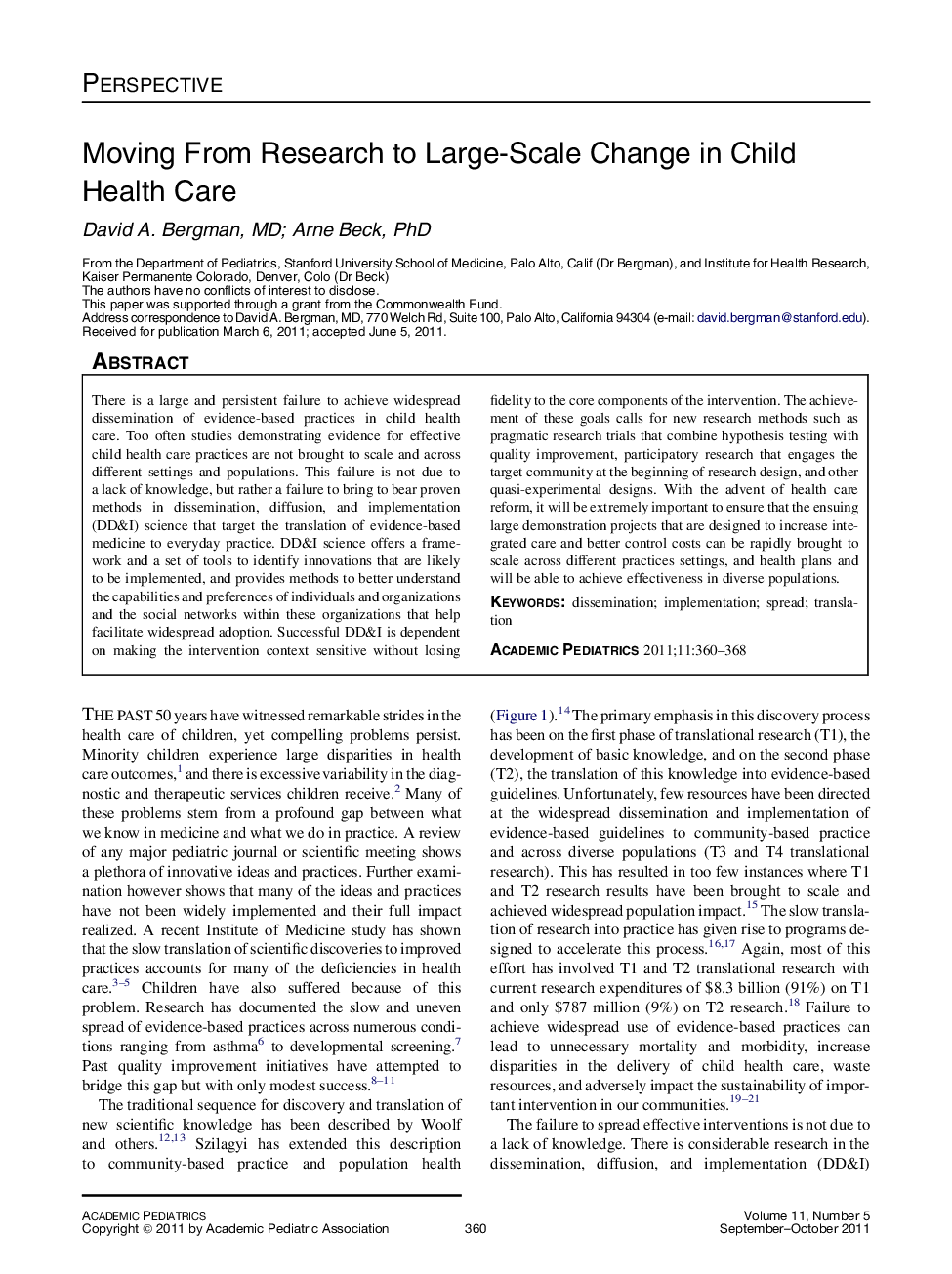| Article ID | Journal | Published Year | Pages | File Type |
|---|---|---|---|---|
| 4139943 | Academic Pediatrics | 2011 | 9 Pages |
There is a large and persistent failure to achieve widespread dissemination of evidence-based practices in child health care. Too often studies demonstrating evidence for effective child health care practices are not brought to scale and across different settings and populations. This failure is not due to a lack of knowledge, but rather a failure to bring to bear proven methods in dissemination, diffusion, and implementation (DD&I) science that target the translation of evidence-based medicine to everyday practice. DD&I science offers a framework and a set of tools to identify innovations that are likely to be implemented, and provides methods to better understand the capabilities and preferences of individuals and organizations and the social networks within these organizations that help facilitate widespread adoption. Successful DD&I is dependent on making the intervention context sensitive without losing fidelity to the core components of the intervention. The achievement of these goals calls for new research methods such as pragmatic research trials that combine hypothesis testing with quality improvement, participatory research that engages the target community at the beginning of research design, and other quasi-experimental designs. With the advent of health care reform, it will be extremely important to ensure that the ensuing large demonstration projects that are designed to increase integrated care and better control costs can be rapidly brought to scale across different practices settings, and health plans and will be able to achieve effectiveness in diverse populations.
